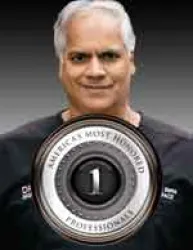In recent years, cosmetic surgery has surged in popularity. Often, when a man or woman first considers undergoing a cosmetic treatment, their thoughts turn to Botox. Approved by the FDA in 2002 Botox is an injectable initially used to treat crow's feet, forehead line, or frown furrows. According to the drug's manufacturer, Allergan, Inc., after formal government approval, cosmetic use of Botox "rose to 40% of 311 million in the first three quarters of 2002."
https://www.webmd.com/beauty/features/the-many-faces-of-botox-feature#1.
Now, Botox is regularly used for other medical conditions.While Botox, like Xeomin and Dysport, are commonly used to rejuvenate facial features, they are also used to treat muscle spasms, stiffness, and excessive sweating. Neuromodulators are also being used to treat bladder problems as well as male and female reproductive conditions. These medications provide a temporary result and treatment must be repeated at various intervals to maintain the result or effect. Botulinum injections work by blocking muscular nerve signals. This in turn weakens muscle contraction and results in a more relaxed, youthful look. Patients most benefit from this when treating wrinkles and creases, whether from aging or other causes. These can form from practically any facial movement, including frowning, squinting, raising eyebrows, and even smiling, but the severity of the wrinkle will vary from person to person. By utilizing botulinum injections, patients can address these with minimal invasiveness and vastly improve their appearance.
https://www.cosmeticsurgery.org/page/BotoxInjections?&hhsearchterms=%22botox%22

Furthermore, in 2010 Botox was approved to treatchronic migraines. "In a study of adults who getchronic migraine headaches, shots of Botox cut down the total number of days they had them or even other types of headaches. They also had more "crystal-clear" pain free days each month, and they reported fewer days off work.In another study, nearly half the people who took two rounds of Botox shots reported that the number of days they had a headache each month was cut in half. After five rounds of treatment, that increased to about 70% of the people.Doctors think Botox works for migraine headaches because it blocks chemicals called neurotransmitters that carry pain signals from your brain. Botox is like a roadblock in that pathway. It stops the chemicals before they get to the nerve endings around your head and neck.
https://www.webmd.com/migraines-headaches/botox-migraines#1.
Additionally, in a Time Magazine article entitled, Botox, The Drug That's Treating Everything, the author noted, "In 2014, Dr. Norman Rosenthal, a clinical professor of psychiatry at Georgetown University School of Medicine, and Dr. Eric Finzi, an assistant professor of psychiatry at George Washington School of Medicine, published a study showing that when people with major depression got Botox, they reported fewer symptoms six weeks later than people who had been given placebo injections…In 2015, Botox, produced by pharmaceutical maker Allergan, generated global revenue of $2.45 billion-more than half of which came from therapeutic rather than cosmetic uses.
http://time.com/magazine/us/4623396/january-16th-2017-vol-189-no-3-u-s/.

Even though the medical benefits of Botox continue to grow, it is still an excellent choice to combat those treat crow's feet, forehead line, or frown furrows. However, you may have other thoughts or concerns, such as:
- Safety: "Made up of a purified form of botulinum toxin A, there is no botulism risk when used properly. They work by blocking the nerves that contract muscles, softening the appearance of wrinkles. https://www.webmd.com/beauty/features/the-surprising-benefits-of-botox Botox is one of, if not the most, researched cosmetic procedure on the market, yet myths still abound regarding this mainstream treatment. "Botox has a remarkably safe history.
https://www.theguardian.com/lifeandstyle/2016/aug/27/botox-safe-new-research-testing-toxins-fda.
For additional information, see here:
https://www.facialaestheticsurgery.com/10-common-myths-about-botox/ - Medical Provider: Choose a qualified, knowledgeable provider, such as a dermatologist or a cosmetic surgeon. As previously noted, "…there is no botulism risk when used properly." The key fact to take away from the earlier statement is "when used properly." Botox injections, like all cosmetic procedures, should be performed by a qualified professional
.Formore information, see here: https://www.facialaestheticsurgery.com/what-makes-a-great-injector-botox-sculptra-injectablesetc/.
For medical injectors in Atlanta, see here: https://www.facialaestheticsurgery.com/choosing-the-best-botox-injector-in-atlanta/,
or here: https://www.facialaestheticsurgery.com/botox-atlanta-choosing-right-injector/ - What can you expect? A doctor usually performs Botox injections in the doctor's office or a clinic. Your appointment should last less than 15 minutes. Your doctor may use a cold pack or anesthetic cream to numb the areas to be injected. A tiny needle will be used to inject the Botox into the muscles that cause lines and wrinkles. The number of injections you receive will depend on the severity of your wrinkles and their location on your face. There is no recovery time with Botox injections. You can return to your normal activities right away. Avoid rubbing the areas that were injected as it could cause the botulinum toxin to migrate to other areas of your face, causing temporary facial weakness or drooping. Slight bruising may occur at the injection sites. Most people see results within a few days, but it may take up to a week to see the full effect. Botox usually lasts about three to four months. More injections are necessary to maintain your results. https://www.healthgrades.com/right-care/cosmetic-botox/are-you-a-good-candidate-for-botox.
If you still have lingering questions, additional information can be found here: https://www.facialaestheticsurgery.com/botox-faq/.
If you still have lingering questions, additional information can be found here:
Dr. Pradeep K. Sinha, MD, PHD, FACS and the Atlanta Institute for Facial Aesthetic Surgery offer both Botox® and Dysport® cosmetic injections to help you look and feel your very best. Using the most innovative methods with personalized care that ensures the best results, we offer a comprehensive complimentary consultation to educate and assist you in deciding if Botox or Dysport are right for you. Please contact us at Atlanta Institute for Facial Aesthetic Surgery, 5730 Glenridge Drive, T200, Atlanta, GA 30328 or call (404) 256-5428 to schedule your individual, private consultation.






















